Sports
Olympics 'FOMO' behind Prathamesh Jawkar's swap from compound to recurve archery
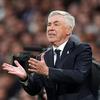
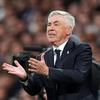
“When I started archery, my coach had told me that my bow arm, its joint structure, was ideal for compound and not good for recurve. I considered myself physically incapable of doing recurve. But then at the Paris Olympics, there were so many archers, men and women, with different body structures. They were shooting at the highest stage. I thought if I was mentally capable of performing in high-pressure situations, then my arm won’t come in the way of this journey,” the Asian Games gold medallist recalled.It’s been six months since he made the shift to recurve. While he chose to remain tight-lipped about his new compound coach, Prathamesh admits that there’s been some teething trouble. When Prathamesh — who had beaten then-World No. 1 Mike Schloesser of Netherlands in 2023 to win the World Cup in Shanghai —started out in the sport, he had made up his mind that recurve archery was never an option for him.
Prathamesh (in picture) will be using 2025 to prepare himself and participate in local tournaments to test the waters, all with that ultimate Olympic goal in mind.
| Photo Credit:
SPECIAL ARRANGEMENT
Prathamesh will be using 2025 to prepare himself and participate in local tournaments to test the waters, all with that ultimate Olympic goal in mind.“I thought come the 2028 Olympics, I would have been at the peak of my career. But we got to know last year that compound archery wouldn’t be a part of the Los Angeles Olympics, at least. That was harsh news for me, but I’d made up my mind that I would have to settlen for a life without the Olympics,” he explained. “Lot of archers have shifted from recurve to compound because that’s the easy way out to get medals. But moving the other way sends a good signal to all of those archers that they can come back and boost India’s chances to win at the Olympics,” the Dronacharya Awardee told Sportstar. “The main aim is to make the Indian team for the 2026 World Cups and the Asian Games,” he concluded. “It’s a challenge. I’m going to feel really good if I pull this off and show that I can do the things which people think are impossible.”“I decided to go and watch the Paris Olympics, just for the experience of it. It was really incredible. I felt FOMO (fear of missing out) while being there, that I’m missing out on the greatest stage for an athlete. When I was watching the men’s recurve gold medal match, I decided I really wanted this and I would give up anything to get it,” the 21-year-old told Sportstar on Thursday, after World Archery officially announced his shift.In attendance was Prathamesh Jawkar, one of India’s best archers. He was there at the Esplanade des Invalides as a spectator because his discipline – compound archery – is not part of the quadrennial event.
Challenges ahead
But it was that gold medal match which prompted the youngster from Maharashtra’s Buldhana to take a giant leap of faith.For someone whose target has always been to help India win that elusive medal in archery at the Olympics, the International Olympic Committee’s decision to not include compound in the 2028 Los Angeles Games was a bitter pill to swallow. ALSO READ | Khelo India Para Games 2025: Full schedule, dates, venues, disciplines, mascot and more

| Photo Credit:
SPECIAL ARRANGEMENT
On August 4, 2024, South Korea’s Kim Woo-jin beat USA’s Brady Ellison 6-5 to clinch the gold medal in men’s recurve archery at the Paris Olympics.
According to former SAI High Performance Director (Archery) Sanjeeva Kumar Singh, this development bodes well for a lot of archers who usually shift in the other direction. “It hasn’t been smooth. Recurve needs a lot more strength. Compound archery has a mechanical bow so you don’t get tired easily. I had to build my strength from zero because it’s really hard to pull the bow. I still haven’t developed the power to shoot higher scores. There have been a lot of painful days for me in these past few months,” he said. “It’s the right decision. Prathamesh has performed really well at the world level. When you look at the Olympics, it depends whether the athlete can take on the pressure. The winning mindset, good body structure, the perfect T-stance – he has it all. What is required is the right coaching,” the Olympian — who represented India in the 1988 Seoul Games — added.
Sports
Kentucky set to host volleyball regional
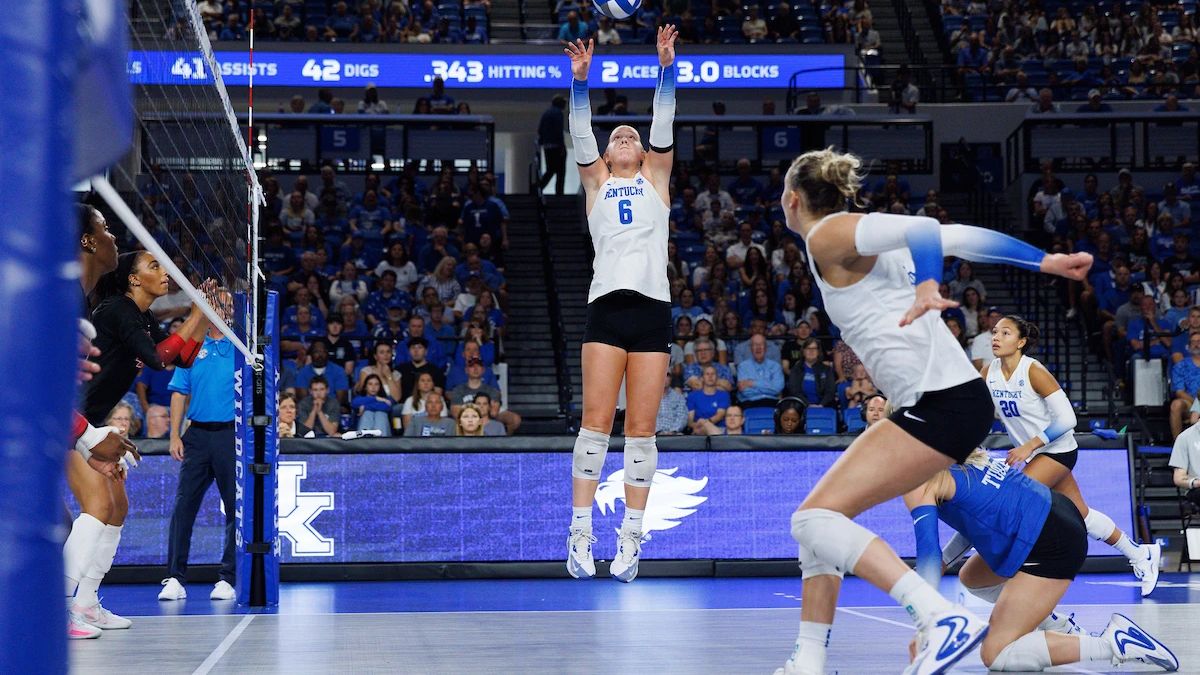
LEXINGTON, Ky. — The University of Kentucky is hosting the 2025 NCAA Volleyball Lexington Regional. Matches will be played Thursday and Saturday at Memorial Coliseum.
Top-seeded Kentucky opens play Thursday afternoon at 3:30 p.m. ET against Cal Poly, who beat the No. 4 seed USC in five sets Friday to advance. In the regional’s opening match, second-seeded Arizona State will play third-seeded Creighton at 1 p.m. ET. ESPN2 will have live coverage of the matches Thursday, with both also shown live on the ESPN app. The two winners of Thursday’s matches will meet Saturday afternoon in the regional final, with the winner advancing to the NCAA Final Four the following weekend in Kansas City, Missouri. The Lexington Regional final on Saturday will be aired live on the ESPN networks, with a time to be announced Thursday.
All-session tickets for the 2025 Lexington Regional go on sale Monday at 10 a.m. ET through UK Athletics by calling the ticket office at 859-257-3838 or visiting the ticket office in the Joe Craft Center. Fans interested in purchasing single-session tickets can acquire those tickets beginning at 10 a.m. ET Tuesday. One ticket will get fans into both regional semifinal matches Thursday.
2025 NCAA Volleyball Lexington Regional Memorial Coliseum — Lexington, Ky.
Thursday, Dec. 11
- Match 1: 1 p.m. ET — (2) Arizona State vs. (3) Creighton [ESPN2]
- Match 2: 3:30 p.m. ET — (1) Kentucky vs. Cal Poly [ESPN2]
Saturday, Dec. 13
- Match 3: Time TBA — Winner Match 1 vs. Winner Match 2 [TV TBA] — Winner advances to NCAA Final Four
Sports
El Paso volleyball player Giselle Gandara named MaxPreps All-American
Dec. 7, 2025, 9:15 a.m. MT

Eastlake High School volleyball player Giselle Gandara has been named to the MaxPreps Freshman All-American volleyball team.
The 5-9 outside hitter had 427 kills, 378 digs, 66 blocks and 53 aces for the Falcons, who finished 36-5 and won two playoff matches this past season. She is one of five Texas players on the 20-person team.
“Giselle is a fantastic player,” Eastlake coach Roel DeAnda said. “She has a strong work ethic and her future is bright. It’ll be great to see her compete in the next three years.”

Gandara’s sister, Genna, is the setter for Eastlake and is a junior.
“To see Giselle’s growth as player has been amazing,” Genna said. “She’s hard working and plays with confidence,”
Added Giselle: “It was a blessing for the great season we had as a team. Playing alongside my sister Genna helped me so much, I learned a great deal from here. I wanted to make an impact as a freshman. I wanted to prove people wrong this year and that I could play at a high level. We had an amazing team and beating Keller in the playoffs was a special moment.”
Felix F. Chavez can be reached at fchavez@elpasotimes.com; @Fchavezeptimes on X
Sports
Bump, set, spike: Dinos teach students of all skill levels volleyball during unique one day camp
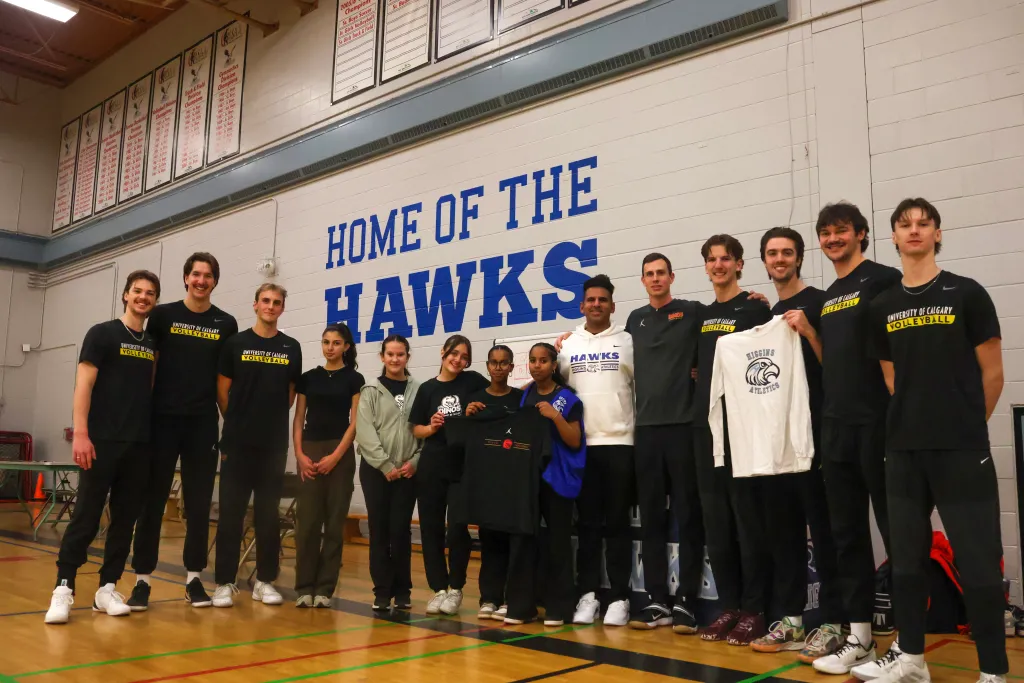
For the average junior high student, volleyball can be a counterintuitive and hard-to-learn sport. By partnering with the Calgary Dinos Men’s Volleyball team, Andy Brar, a Teacher at Dr. Gordon Higgins School, hopes to break as many of those barriers as he can.
For a one day camp, players and coaches from the Calgary Dinos Men’s volleyball team visited the Dr. Gordon Higgins junior high school for a three-hour, two section volleyball camp, at no cost to the school or the students.
“It’s the culmination of two individuals coming together and really highlighting the beauty of their two institutions, for example, the University of Calgary and their esteemed athletic program and the beautiful diversity that exists in a northeast school like this,” Brar told LWC.
With attendance set through an open sign up, Brar said he encouraged students who are unfamiliar with volleyball to attend, as volleyball, though the root of the event, was only a piece of the camp.
“The hope for this camp would be to take these skills and apply them to their everyday life, but also to understand the next time I’m faced with the challenge or I haven’t done something before to step up and jump on opportunities,” he said.
Life skills aside, Brar valued a camp of this caliber, having university level athletes and a former Olympian as instructors at over $20,000 per student. The camp offered a unique opportunity to learn from the best, especially for the students who may have less experience with the sport.
“If you give students confidence months in advance of tryouts, you’re exposing them to a new sport. When that individual who’s giving the instruction is a two-time Olympian, it really highlights the importance of the sport and the underlying commitments of teamwork, communication and building togetherness,” Brar said.
The Olympian in question, second-year Dinos’ head coach Graham Vigrass, said the opportunity was equally valuable for the Dinos team, especially at this point in the season.
“I was excited to see how much fun our guys are having. It’s a time of the year that they’re a bit burnt out from all the practices and matches that we have and this is a bit of a refresh and gets back to their love of the game,” said Vigrass, who represented Canada at the Olympics in 2016 and 2020.
“They see kids that are pumped and excited to see them and get their autographs, I hope that it makes them understand why they fell in love with the game when they were this age, because it’s kind of easy to forget it.”
Brar, who recently was honoured with the 2025 Prime Minister’s Award for Teaching Excellence, hopes the camps can become a somewhat regular thing for his students, a feeling reciprocated by Vigrass.
“This is the first time we’ve done (a camp like this). I’m a newer coach at U of C, but this is a huge priority of mine, is to get out to community and ideally, to communities like this that don’t necessarily have that same opportunity as some others in Calgary,” he said.
Sports
UW-Oshkosh volleyball celebrates first national championship | WFRV Local 5
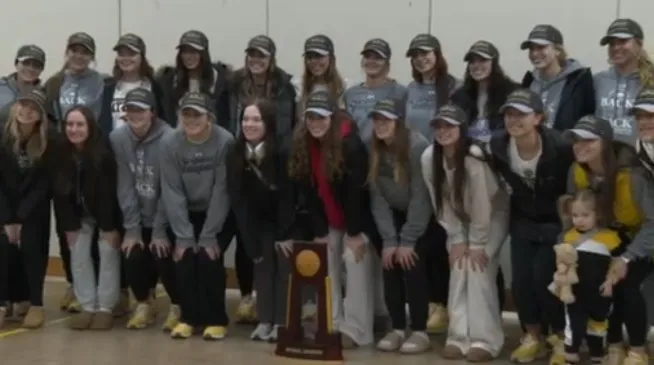
(WFRV) – The UW-Oshkosh women’s volleyball team returned to campus as national champions for the first time in program history, welcomed home by a crowd of celebrating fans.
The Titans capped a dominant postseason run with a 3–0 sweep of No. 5 La Verne in the NCAA Division III title match — completing the tournament without dropping a single set on their way to the crown.
For reaction from the team, click the video above for the full story.
Sports
Is AI taking jobs from college graduates? Here’s what to know

As artificial intelligence continues to make appearances in almost all aspects of our lives, there have been rising concerns for whether it’s taking jobs, especially those of new college graduates entering the labor market.
Colorado State University student Eleanora Proffitt said AI has caused her to worry for the future in an already tight labor market.
“We’re already in a job shortage,” Proffitt said. “AI should be helping us, … not taking our jobs away.”
The unemployment rate of newly graduated college students reached its highest percentage since July 2021 — 5.8% — in April, according to a report by the Federal Reserve Bank of New York. This number, compared to an unemployment rate of 4% for all workers that same month, has raised some alarms regarding AI’s impact.
Oxford Economics, a global economic advisory firm, stated in a recent report that “there are signs that entry-level positions are being displaced by artificial intelligence at higher rates.”
Various job sectors have been affected by AI differently. A working paper published by Stanford Digital Economy Lab found that between late 2022 and July 2025, areas of employment for young workers in software engineering, which SDEL referred to as an “AI-exposed occupation,” has declined by nearly 20%.
Other fields such as customer service, accounting and auditing, secretarial and administrative work, computer programming and sales revealed a similar pattern, according to the paper.
According to CNBC, Some major firms and companies such as JPMorgan Chase, Amazon and Walmart are starting to make the switch to AI for lower-level white-collar jobs because of its cheaper price and supposed efficiency. However, there are still many findings that claim AI is not a major component regarding recent unemployment rates for all recent college graduates.
“Will (AI) take jobs? Yes,” said Martin Shields, a Colorado State University professor of economics. “Will it take all the jobs? Certainly not. And will it create a lot of opportunities? Yes, it will.”
According to an article by The Budget Lab at Yale, the broader labor market has not been hugely disrupted since the release of ChatGPT — a popular AI chatbot developed by OpenAI. The lab notes that an impact on the labor market is likely to take much longer than just 33 months and can take decades to fully settle in.
A current trend in the labor market is that fewer people are quitting their jobs, and fewer employers are hiring because of economic uncertainty. This is known as a labor market tightening, which poses an even greater challenge for fresh college graduates trying to get their foot in the door.
Adjustments to technological progress has been done throughout history and are expected to a certain degree, but some are concerned that job losses may look a little different now, as AI is replacing jobs that were generally thought of as “safe.” Despite the current state of the job market, the Future of Jobs Report 2025 by World Economic Forum estimated that although AI could displace 92 million jobs by 2030, it could add 170 million new ones.
These positions could be in areas of AI development, research and safety, as well as robotics.
“People who can use the technology, lead the use of this technology, communicate it, can check it, can ask it the right questions — those people will thrive with that skill set,” Shields said.
A report by Lightcast, a labor insight platform, found that in an analysis of over 1.3 billion job postings, there has been a surge in demand for AI skills — and higher average pay for jobs that required them.
CSU alumnus and Chief Operating Officer for ZenRows, a web data company, Robert Mata said he has been in tech for 15 years and pays close attention to AI usage when hiring. Mata is not just interested in whether new hires use AI, but more so how they use the tool in the context of the role they are applying for.
“It goes way beyond, ‘Hey, do you use AI daily for X, Y, Z?’” Mata said. “It really depends on the role and the usage of AI.”
Mata said he has had to assess how potential candidates for various positions utilize AI. For example, he asks applicants for sales positions how they use AI to better find leads, source data, acquire contact information and more.
Taking on the potential growth and challenges brought by AI, CSU has begun integrating AI literacy into higher education. The webpage titled AI @ CSU has news related to AI, resources for learning how to use AI and pages describing the institution’s mission and vision with AI.
CSU also offers a range of classes available to students who wish to expand their skills in AI, with more to come. As the job market adjusts to new technology, experts suggested that no matter what field students dream of working in, learning how to better navigate AI and use it as a tool are what experts and the job market are alluding to as crucial in this job climate.
“Let’s use this tool,” Shields said. “Let’s recognize its limitations. Let’s recognize that there are a lot of things that we can do that it can’t and hone in on those skills.”
Reach Katya Arzubi at news@collegian.com or on social media @RMCollegian.
Sports
Kenlee Barnard leads Courier & Press 2025 All-Metro volleyball team
Dec. 8, 2025, 3:02 a.m. CT
EVANSVILLE — Ashley Kaczmarski remembers when everything clicked into place this season.
Her North High School volleyball team was on the road at Heritage Hills. The Huskies lost the second set to the eventual sectional champions. Kaczmarski sensed her group was off that evening — none moreso than star setter Kenlee Barnard.
The coach pulled her senior captain aside during the break with a message: the team needed her. What transpired that night, and by extension the rest of the season, summed up what many in the program already knew. Barnard was going to lead the way.
-

 Rec Sports2 weeks ago
Rec Sports2 weeks agoFirst Tee Winter Registration is open
-

 Rec Sports2 weeks ago
Rec Sports2 weeks agoFargo girl, 13, dies after collapsing during school basketball game – Grand Forks Herald
-

 Motorsports2 weeks ago
Motorsports2 weeks agoCPG Brands Like Allegra Are Betting on F1 for the First Time
-
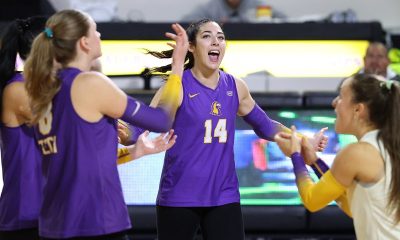
 Sports3 weeks ago
Sports3 weeks agoVolleyball Recaps – November 18
-

 Motorsports2 weeks ago
Motorsports2 weeks agoF1 Las Vegas: Verstappen win, Norris and Piastri DQ tighten 2025 title fight
-

 Sports2 weeks ago
Sports2 weeks agoTwo Pro Volleyball Leagues Serve Up Plans for Minnesota Teams
-

 Sports2 weeks ago
Sports2 weeks agoUtah State Announces 2025-26 Indoor Track & Field Schedule
-

 Sports2 weeks ago
Sports2 weeks agoSycamores unveil 2026 track and field schedule
-

 Motorsports2 weeks ago
Motorsports2 weeks agoRedemption Means First Pro Stock World Championship for Dallas Glenn
-

 NIL1 week ago
NIL1 week agoBowl Projections: ESPN predicts 12-team College Football Playoff bracket, full bowl slate after Week 14























































